おすすめニーチェ解説書10選~ニーチェとは何者なのか、その思想を学ぶために
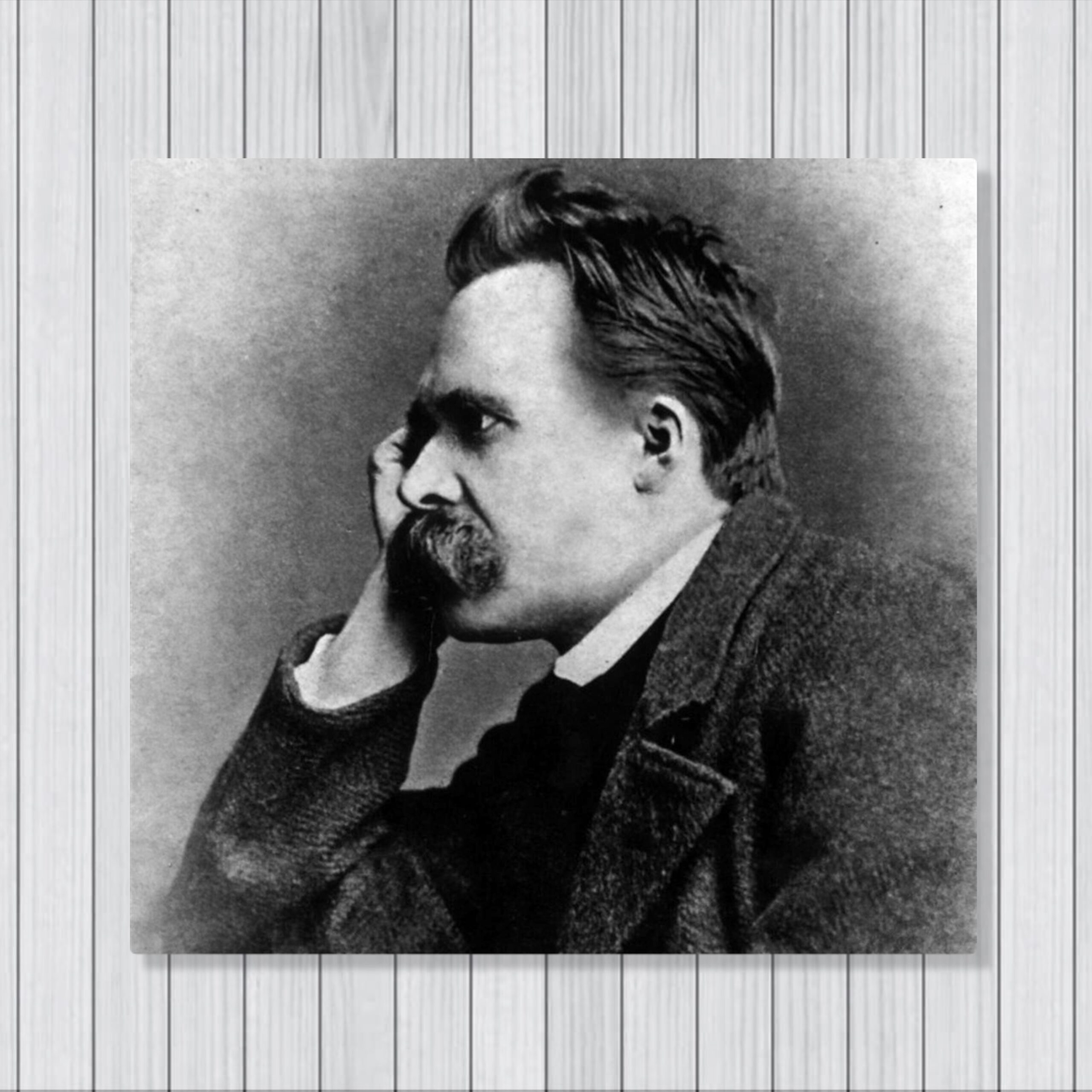
おすすめニーチェ解説書10選~ニーチェとは何者なのか、その思想を学ぶために
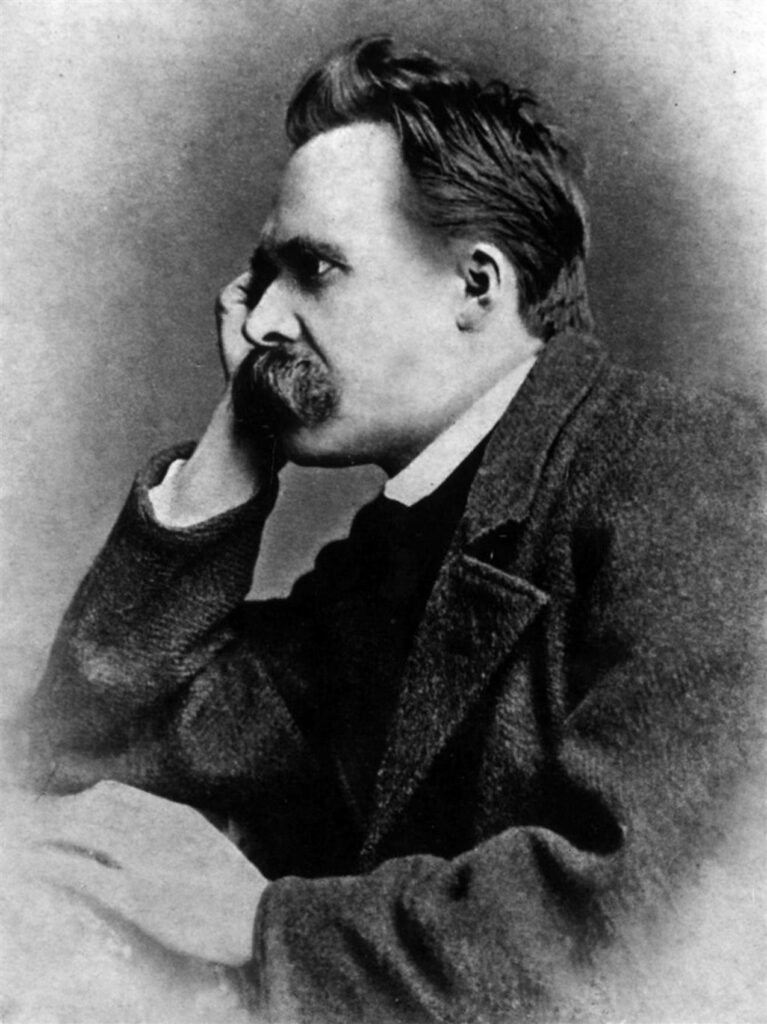
ニーチェといえばとにかく難しいというイメージがありますよね。
実際、『ツァラトゥストラ』などを読んでみると、短い文章が単発で繋げられていくアフォリズムという独特な形式やその語っている内容の難解さに面食らうと思います。私も毎度毎度読むたび面を食らっています。
そしてニーチェの難しい所は参考書を読んでもその著者によって様々な解釈があり、何が本当に正しいのかもわからないという点です。解釈の多様さもニーチェの特徴と言えるかもしれません。
そんな中でも私がおすすめするのがこれから紹介する10冊の参考書になります。
これから紹介する本を見て皆さんは驚かれるかもしれませんが、一般的に「ニーチェ 入門」と検索しておすすめされる本とはたしかに違うラインナップです。ニーチェ入門の本を探している方にはハードルが高いと思われるかもしれませんが、実際読んで頂ければわかると思いますがとても丁寧でわかりやすい解説書ばかりです。
一応、私もニーチェ入門的な本をいくつも読みました。しかし結局よくわからないというのが正直なところでした。難解なニーチェ哲学をわかりやすく噛み砕こうとすると、大事なものがどうしても薄まってしまう。そうしたことが起ってしまうのです。むしろ、「ニーチェとはこういうものなんだ」と中途半端にわかることがニーチェにおいては非常に危険です。ニーチェは用い方によっては危険思想になってしまいます。
「わかりやすい入門書」は良くないと一概に申したいわけではありませんがこの辺りの事情については以下の記事で解説していますので、これからニーチェを学びたいという方はぜひ参考にして頂けると嬉しいです。もちろん、すでにニーチェと親しい方にもぜひ読んで頂けたらなと思います。
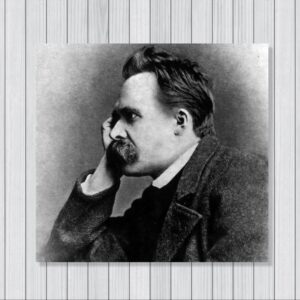
では早速始めていきましょう。
それぞれのリンク先でより詳しくその本について紹介していますで気になった方はぜひリンク先もご参照ください。
1.R.ザフランスキー『ニーチェ その思考の伝記』
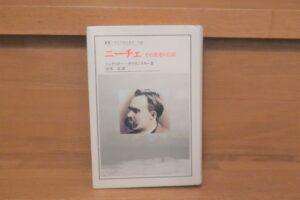
著者のザフランスキーはドイツ生まれの評伝作家で、ジャーナリスト、学者としての経歴もあります。
この本の特徴は何と言っても、単なる伝記ではなく、「思考の伝記」であるという点にあります。ニーチェの生涯を辿りながらその思考のプロセスをこの本では見ていくことになります。
しかも難解な哲学者の代表とも言えるニーチェの思想を小難しい言葉をなるべく使わずに解説してくれる点もありがたいです。
この本はわかりやすくも、その本質をしっかりと押さえた参考書になっています。難解なものをわかりやすい言葉で説明するというのはある意味危険を伴います。簡単に表現することで本来のものからかけ離れてしまう危険があるのです。しかしこの本ではそうしたことにならないよう、著者は細心の注意を払っていることがうかがわれます。
ニーチェを学ぶ上の入門書としても、さらに深く知るための参考書としてもこの本はとてもおすすめなように私は感じました。読んでいてニーチェの思考過程が伝わって来て非常に興味深かったです。
R.ザフランスキー『ニーチェ その思考の伝記』ニーチェの思想はいかにして生まれたのか
Amazon商品ページはこちら↓
ニーチェ: その思考の伝記 (叢書・ウニベルシタス 724)
2.渡辺二郎・西尾幹二編『ニーチェ物語 その深淵と多面的世界』

「ニーチェとは何者なのか。」
これは永遠のテーマなのかもしれません。
読まれる時代、読む者それぞれの違いによって違った姿で現れてくるニーチェ。
この本ではそんな「多面体」というべきニーチェについて考えていく参考書となっています。
この本では様々な項目がたくさんの専門家によって書かれています。
目次を見て頂ければ一目瞭然です。
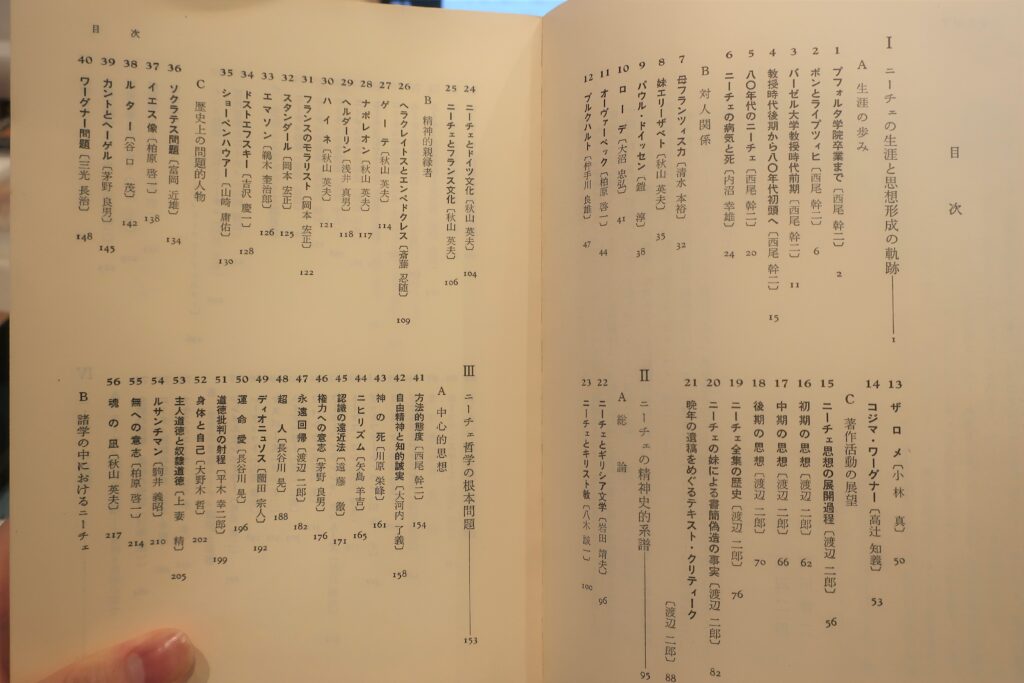
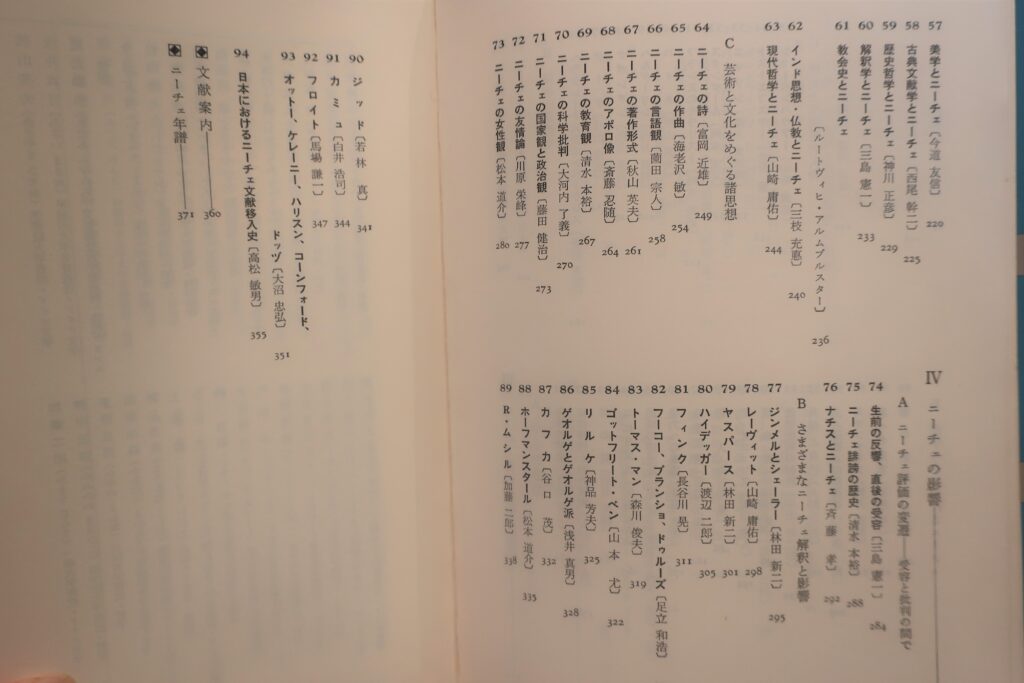
そしてありがたいのが単にニーチェの解説だけでなく、彼と関係のある作家や哲学者との関係も書かれている点です。
1枚目の目次にありますように、ドストエフスキーについての言及もあります。これはとてもありがたかったです。
また、ニーチェの生涯や思想面についても簡潔にまとめられていますので、困った時の参考書としても非常に便利な1冊となっています。
通読するにはやや厳しいなという思いもありますが、自分の関心のある部分を参照したい時には非常に助かる参考書です。
渡辺二郎・西尾幹二編『ニーチェ物語 その深淵と多面的世界』画期的なニーチェ参考書
Amazon商品ページはこちら↓
ニーチェ物語―その深淵と多面的世界 (1980年) (有斐閣ブックス)
3.ベン・マッキンタイアー『エリーザベト・ニーチェ ニーチェをナチに売り渡した女』
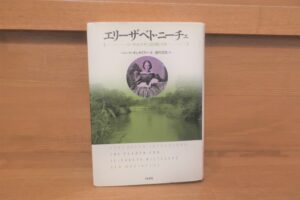
この本は凄まじいです。衝撃的です。
「嘘でしょ!?」と思わずにはいられない驚くべき事実の連発です。
世界がいかにニーチェを受容していったのかを調べようと思い手に取ったこの本でしたが、想像をはるかに超える面白さでした。
ニーチェ自身も規格外の存在でしたがこの本によれば、その妹もとてつもない人物でした。彼女は夫とともに南米パラグアイの奥地に純粋アーリア人の村を作り、そこの支配者として君臨し、村人たちを騙し続けていました。しかもニーチェ発狂後は彼の著作や手紙を改竄し、自分の都合のいいように「偉大な哲学者ニーチェ」を作り上げ、最後にはナチスに加担することになります。
この本ではそんな恐るべきニーチェの妹の生涯を通してニーチェの人物像もあぶり出していくという作品となっています。ニーチェが世界でどのように受容され利用されてきたかということがこの本で明らかになります。
ただ単に思想や哲学のプロセスを見るのではなく、生身の人間のどろどろした生活すべてからニーチェ兄妹の姿を追っていくところにこの本の特徴があります。これはものすごく興味深かったです。
これはぜひおすすめしたい一冊となっています。ぜひ手に取って頂きたい作品です。
ベン・マッキンタイアー『エリーザベト・ニーチェ ニーチェをナチに売り渡した女』衝撃の一冊!
Amazon商品ページはこちら↓
エリーザベト・ニーチェ ─ ニーチェをナチに売り渡した女 (書物復権)
4.W.シューバルト『ドストエフスキーとニーチェ その生の象徴するもの』
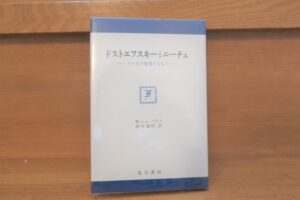
著者のワルター・シューバルトは1897年にドイツで生まれた哲学者です。日本ではほとんど知られておらず、ドイツ本国でもあまり知られていない存在だそうです。というのも、彼はナチスに反対していたためドイツから逃れリトアニアに亡命しなければなりませんでした。そこで苦労しながらも研究を続けこの『ドストエフスキーとニーチェ その生の象徴するもの』を1939年に書き上げました。
しかし1941年に独ソ戦が始まると今度はソ連によって連行されそのまま殺害されてしまったそうです。
ですのでシューバルトは学者時代に常に迫害され続けたため歴史の表舞台に立つこともなく、ひっそりとナチス、ソ連の対立の中でその生涯を終えてしまったのです。
こうした悲運の著者による力作がここでご紹介する『ドストエフスキーとニーチェ その生の象徴するもの』になります。
著者は絶対的な真理を追い求める両者を神との関係性から見ていきます。
さらにこの本では『罪と罰』の主人公ラスコーリニコフや『カラマーゾフの兄弟』のイワンとニーチェの類似についても語っていきます。理性を突き詰めたドストエフスキーの典型的な知識人たちの破滅とニーチェの発狂を重ねて見ていきます。これもものすごく興味深かったです。
この本では興味深い箇所が山ほどあり、正直、本そのものを全部引用して紹介したいくらいの気持ちです。ですがそれをしてしまうと大変なことになってしまうのでそれはあきらめます(笑)
ただ、私自身にとってもこの本は非常に衝撃的なものであり、これからも何度もじっくりと読み返していきたいなと思える本でした。
この本はドストエフスキー、ニーチェの両者を考える上で非常に有益な参考書です。この本がほとんど知られていないのはあまりにもったいないです。ぜひともこの本がもっと広まることを願っています。
W.シューバルト『ドストエフスキーとニーチェ その生の象徴するもの』2人のキリスト教理解から読み解くおすすめ参考書!
Amazon商品ページはこちら↓
ドストエフスキーとニーチェ―その生の象徴するもの (1982年)
5.J・R=ローゼンハーゲン『アメリカのニーチェ ある偶像をめぐる物語』

この本ではニーチェがアメリカにおいていかに受容されてきたかを見ていきます。ニーチェは読む人によってその姿が変わってきます。つまりニーチェ解釈にはその人その人の個性が出てきます。ニーチェがどのように受容されたかを知ることで当時の人たちの思想を知ることにもつながっていきます。
ニーチェがいかに多様に理解されていたかがこの本を読めばわかります。
「ニーチェとは~~である」と言うことは自分の思想表明に他ならないことを感じます。それほどニーチェは謎多き存在なのだなと実感しました。
ただ、内容はかなり専門的ですのでニーチェの入門書としてはあまりおすすめできません。あくまで「ニーチェは読む者によって姿を変える」ということを感じるためにおすすめな作品です。非常に興味深い1冊でした。
J・R=ローゼンハーゲン『アメリカのニーチェ ある偶像をめぐる物語』アメリカにおけるニーチェ受容の歴史
Amazon商品ページはこちら↓
アメリカのニーチェ: ある偶像をめぐる物語 (叢書・ウニベルシタス 1102)
6.樋口裕一『ヴァーグナー 西洋近代の黄昏』
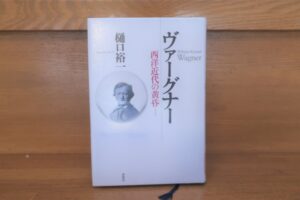
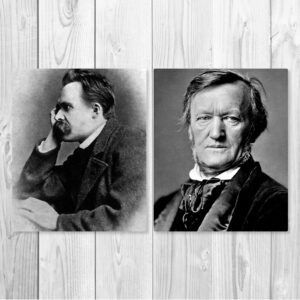
上の記事でニーチェとワーグナーのつながりについてお話ししましたが、そんなワーグナーの特徴を知るためにおすすめな参考書がこの1冊になります。
著者の樋口裕一氏は2004年に発行されたベストセラー『頭がいい人、悪い人の話し方』で有名です。
樋口氏はここで紹介されていますようにクラシック音楽に造詣が深く、特にワーグナーは40年以上も愛好しているそうです。そんな氏のワーグナー愛が溢れた作品となっています。
また、この本ではワーグナーともつながりの深いマルクス、ドストエフスキー、ニーチェについても言及されます。
ワーグナーと思想、文学、哲学の関係についても著者はお話ししてくれますので、様々なジャンルがつながり非常に興味深いです。
ワーグナーの生涯や特徴だけでなく、西洋文化の歴史も知ることができるのでとても面白い本です。クラシック音楽に疎い私でしたが、とてもわかりやすくて夢中になって読むことができました。
中学高校と音楽の授業に大苦戦していた私でしたがこの本はあっという間に読み終えてしまいました。こういう本が教科書だったらもっと音楽が好きだったのにと思ってしまいました(笑)
この本も非常におすすめな1冊です。ワーグナーの音楽を通して西洋文化の歴史の流れまで知ることができる非常に興味深い1冊です。ぜひ手に取ってみてはいかがでしょうか。
樋口裕一『ヴァーグナー 西洋近代の黄昏』ワーグナーの特徴を知るためのおすすめ参考書!
Amazon商品ページはこちら↓
7.西尾幹二『ニーチェ 第一部』

この本の特徴はニーチェの生涯を当時の時代背景や思想の流れと共に詳細に追っていく点にあります。
この本は全367ページとなかなかな分量ですが、この本ではニーチェが学者となる前の青年時代、1865年までのニーチェが書かれます。つまり、21歳までのニーチェを丸一冊かけてじっくりと見ていくことになります。
単にニーチェの生涯を学ぶだけでなくそこから私たちが何を思うのか、それを体感していく読書体験になりました。知的興奮を味わえる1冊です。とてもおすすめな作品です。
Amazon商品ページはこちら↓
8.西尾幹二『ニーチェ 第二部』

ここでご紹介するのは、1977年に中央公論社より発行された西尾幹二著『ニーチェ 第二部』です。この本は上で紹介した西尾幹二著『ニーチェ 第一部』の続編に当たります。
『ニーチェ 第一部』では21歳までのニーチェが語られましたが、この第二部では彼の教授デビューや巨匠ワーグナーとの出会い、処女作『悲劇の誕生』の成立過程について語られていきます。
第一部も非常に興味深い内容が満載でしたがこの第二部も負けていません。意外な事実がどんどん出てきます。この本では哲学者ニーチェだけでなく、大学教授、看護兵、高校教師としてのニーチェの素顔を知ることができました。人間味溢れるニーチェの姿を感じることができ非常に興味深かったです。
非常におすすめな1冊です。ニーチェに対する見方が変わるほどの作品です。ぜひ手に取って頂ければと思います。
西尾幹二『ニーチェ 第二部』大学教授、看護兵、高校教師ニーチェの意外な素顔とは
Amazon商品ページはこちら↓
9.『西尾幹二全集第五巻 光と断崖ー最晩年のニーチェ』

この本では発狂直前のニーチェの作品や彼の思想を解説する「最晩年のニーチェ」が収録されています。
上で紹介した『ニーチェ 第一部』と『ニーチェ 第二部』の続編にあたる論稿です。
ニーチェ最晩年の作品には『偶像の黄昏』や『アンチクリスト』、『この人を見よ』などニーチェ思想における重要な作品があります。
著者の西尾氏はその中でも『アンチクリスト』こそ晩年の傑作とし、その解説に多くの頁を割いて語っていきます。
その中でも個人的に驚きだったのがドストエフスキーとの関係です。他の参考書ではニーチェがドストエフスキーの後期作品を読んでいたかは不明だとされていたのですが、西尾氏によると『悪霊』や『白痴』の影響が『アンチクリスト』には明らかに反映されていて、資料的な裏付けもしっかりとなされているとのことでした。
『偶像の黄昏』、『アンチキリスト』、『この人を見よ』をもっと深く知りたい方にはこの本は非常に役に立つと思います。これらの作品に込められた意味や制作の背景がくっきりと見えてきます。
また、ニーチェの問題作『権力への意志』についての詳細な解説もこの本の魅力の一つです。『権力への意志』がどのように成立したのか、そしてその問題点はどこにあるのかということが詳細に語られます。
この本は単にニーチェの解説だけにとどまらず、いかにニーチェと向き合うかということも考えさせられます。ニーチェに興味のある方にぜひおすすめしたい1冊となっています。
『西尾幹二全集第五巻 光と断崖ー最晩年のニーチェ』~発狂直前のニーチェの思想を解説
Amazon商品ページはこちら↓
10.橋本智津子『ニヒリズムと無ーショーペンハウアー/ニーチェとインド思想の間文化的解明』
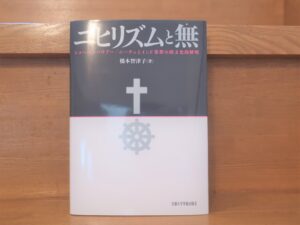
この本ではショーペンハウアーとニーチェのインド思想との繋がりについて見ていくことになります。
ショーペンハウアーの『意志と表象としての世界』や『幸福について』ではインド思想の影響が顕著に現れています。
そしてそのショーペンハウアーに強い影響を受けたニーチェも仏教思想に関心を向けていました。彼の晩年の作品では仏教に対して数々の言及がなされており、キリスト教に対して辛辣な意見を述べたあのニーチェが仏教には好意的な見解を述べています。
この本ではそんなショーペンハウアーやニーチェが実際にインド哲学や仏教のどの文献を参考し、自らの思想の糧としたかを見ていくことになります。
「彼らがインド哲学や仏教に影響を受けた」と言うのは簡単ですが、いざ実際にどの文献や参考書を読んでいたのかというのはなかなか難しい問題です。
一口に仏教と言っても時代や地域によってかなり異なったものになります。そうした事情を考慮した上でショーペンハウアーやニーチェがどのように仏教を理解したのかを探ることは非常に意義深いことだと思います。
ニヒリズムと仏教の繋がりをより深く知りたい方にはおすすめな1冊です。
橋本智津子『ニヒリズムと無ーショーペンハウアー/ニーチェとインド思想の間文化的解明』
Amazon商品ページはこちら↓
ニヒリズムと無: ショーペンハウアー/ニーチェとインド思想の間文化的解明
番外編・シェストフ『悲劇の哲学 ドストイェフスキーとニーチェ』

この本は1903年にロシアで出版され、日本では1934年に刊行されるやいなや日本の知識人に大きな影響を与え、「シェストフ的不安」という造語が作られるほど流行しました。まさにドストエフスキー思想の古典というべき著作です。
この作品では『悲劇の哲学 ドストイェフスキーとニーチェ』というタイトルにもありますように、ニーチェに関する言及もなされています。
しかし、正直なところニーチェの参考書としてはあまりおすすめできるものではありません。ドストエフスキーとニーチェの関係性を説いた参考書を探せばまず出てくるのがこの作品なのですが、ニーチェその人についてはなかなかわかりにくいというのが正直な感想です。
ドストエフスキーとニーチェの特徴を知るならば、上で紹介したW.シューバルト著『ドストエフスキーとニーチェ その生の象徴するもの』の方が圧倒的にわかりやすいです。
ドストエフスキー思想の古典として読むならばシェストフのこの作品は必読ですが、ニーチェを学ぶという観点ではイマイチという点から番外編とさせて頂きました。
シェストフ『悲劇の哲学 ドストイェフスキーとニーチェ』ドストエフスキー思想の古典
Amazon商品ページはこちら↓
悲劇の哲学 ドストイェフスキーとニーチェ (古典文庫 18)
おわりに
以上、10冊+αのおすすめ参考書を紹介致しました。
ぱっと見るとなかなか手を付けにくいような本が多いと思います。
ですがどの本も読み物として読みやすい本ばかりです。難解な哲学書という雰囲気はありません。新書や文庫と変らず、いや、それ以上にスイスイ楽しく読めるような本ばかりです。
この中でも特にお薦めしたいのがベン・マッキンタイアー『エリーザベト・ニーチェ ニーチェをナチに売り渡した女』です。この本はニーチェ作品を読んだことがなくてもニーチェとは何かということをものすごく考えさせられます。また、西尾幹二の著作もどれも刺激的でおすすめです。
そしてドストエフスキーやキリスト教、宗教の面からニーチェに興味のある方にはW.シューバルト『ドストエフスキーとニーチェ その生の象徴するもの』をぜひともおすすめしたいです。これはもう必読と言ってもいいのではないでしょうか。ドストエフスキーとニーチェの関係がこの上なくわかりやすく示されます。私にとってニーチェ関連の書物で最も印象に残った作品です。
ニーチェは知れば知るほど興味が湧いてくる大人物です。実は私はあまりニーチェが好きではありませんでしたが、学べば学ぶほど愛着が湧き、今では好きになってしまいました。人間ニーチェを知ったことで哲学者ニーチェも好きになっていったのだと思います。
難しいイメージがあり、そして実際に難しいニーチェはなかなか触れがたい存在であると思います。
ですが彼とぶつかる価値は大いにあります。ぜひこの哲学の巨人とぶつかってみてはいかがでしょうか。今回ご紹介した本たちはその大きな助けになります。この記事を通して皆さんのお役に立てましたら嬉しく思います。
以上、「おすすめニーチェ解説書10選~ニーチェとは何者なのか、その思想を学ぶために」でした。
次の記事はこちら
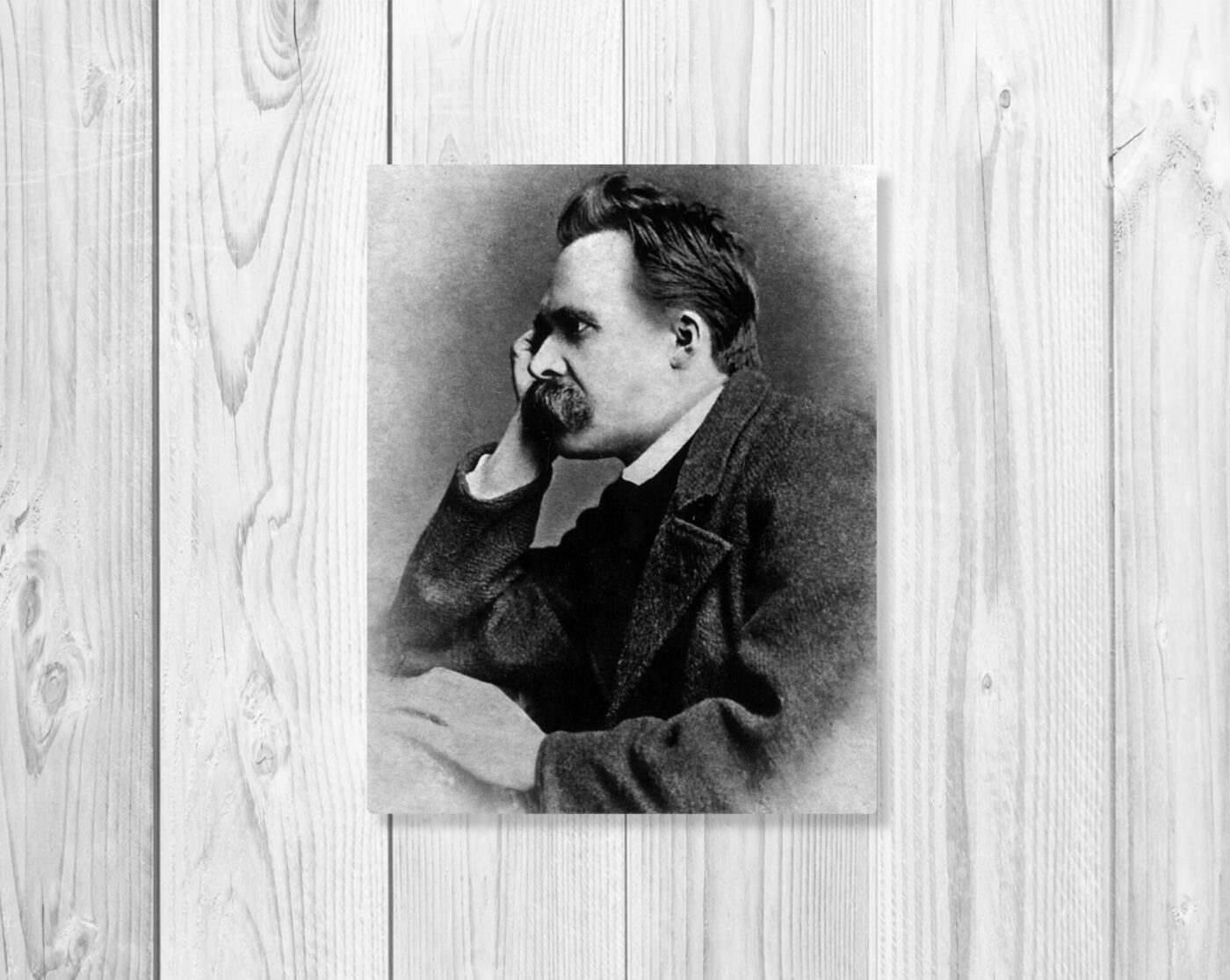
前の記事はこちら

関連記事
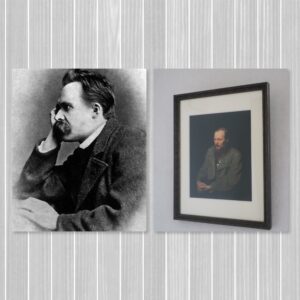



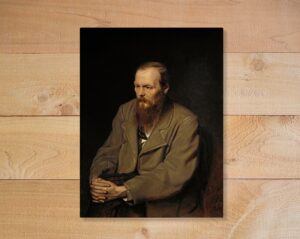
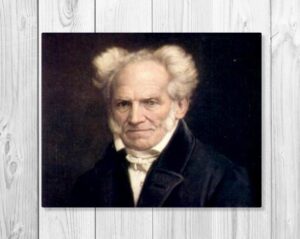














コメント